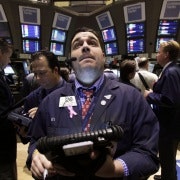Three steps forward and two back for clean energy
Encouraging news on the Europe-China solar panel trade dispute, on the lending policy of a key multilateral development bank and on renewable energy policies in Kazakhstan and Thailand vied for dominance last week with bleaker noises on subsidies in the Czech Republic and Germany.
Breaking news on the trade front over the weekend revealed the European Union and China reaching a provisional deal on solar panel imports.
China agreed to adhere to a minimum export price (€0.56 per watt) and a maximum export quantity (7GW), in order to avoid the imposition of punitive tariffs. “We found an amicable solution in the EU-China solar-panels case that will lead to a new market equilibrium at sustainable prices,” European Trade Commissioner Karel De Gucht said in a statement in Brussels.
The headline of last week came from the European Investment Bank, which set an emission limit on power projects eligible for loans. The 550 grams of carbon dioxide emission per kWh allowed would bar lending to new coal-fired plants unless they also burn biomass, EIB spokesman Richard Willis said. The EIB's decision follows an earlier announcement by the World Bank, which said it would only lend to coal plants in rare cases.
Funding to fossil fuel plants is also being limited by the gathering momentum of divestment campaigns. US activist Bill McKibben, through his group 350.org, has managed to get agreement from six schools, 16 cities and 11 religious institutions to divest their holdings from a group of 200 companies that produce coal, oil or natural gas.
The group has modelled its campaign on the 1980s divestment effort aimed at companies working with the apartheid regime in South Africa. “We know we can’t bankrupt Exxon,” McKibben said in an interview with Bloomberg News in Washington. “But we think we can politically bankrupt them.”
In the US, coal use is expected to fall gradually as electric utilities switch to cleaner alternatives, billionaire investor Warren Buffett said. “Coal will gradually decline in importance, and of course when natural gas prices get low enough you have a big switch over,” Buffett said at an event in Indiana.
The country to offer feed-in tariffs for the first time is Kazakhstan. It announced its intention to offer 15-year incentive tariffs for renewable energy projects as it targets getting 1 per cent of its electricity from clean sources by 2014 and 3 per cent by 2020. A single national buyer of electricity is also proposed to mop up the production of an estimated 1GW of renewable capacity to be installed by the end of the decade.
Another Asian country – Thailand – increased its renewable production target to 25 per cent of total output by 2021. This translates to a capacity target of 13.9GW, from the earlier goal of 9.2GW. It also announced 25-year feed-in tariffs for 1GW of rooftop and community ground-mounted solar systems.
In the UK, The Renewables Infrastructure Group, or TRIG, raised £300m ($US460 million) in the country's biggest initial public offer of a clean energy company. The proceeds will be used to buy 14 onshore wind farms and four solar photovoltaic plants with a combined capacity of 276MW in the UK, France and Ireland, the company said in a statement.
“TRIG’s diversified portfolio of high quality operational onshore wind and solar photovoltaic generation assets will provide investors with the potential to secure an attractive long-term, stable, inflation-linked yield,” Helen Mahy, non-executive chairman of the company, said in the statement.
A reversal of support for renewables was approved by the Czech government last week. The plan, subject to the approval of the parliament, will stop subsidies for new projects at the end of the year.
“The reason for this law amendment is the rising financial burden for electricity consumers. It threatens the competitiveness of our industry and raises consumers’ uncertainty about power prices,” Prime Minister Jiri Rusnok said in a statement.
In neighbouring Germany, economy minister Philipp Roesler made a case for a fundamental reform of the EEG law, which enabled the growth of renewables. He said Germany should introduce incentives so that clean energy plants sell power when it is needed instead of raking in aid and inflating consumer bills.
In an interview with Bloomberg News, Roesler said owners of renewable energy plants may get a fixed payment on top of what they make from selling power in the market. The payment would be a first step to replace feed-in tariffs that guarantee incentive payments for 20 years.
The merger news of the week came from China's Hanergy Holding Group, which acquired the US photovoltaic manufacturer Global Solar Energy for an undisclosed amount. This was its third purchase in a year of a thin-film panel maker.
EU carbon
European Union allowances (EUAs) continued their steady climb in a week of declining volumes, amidst increased uncertainty about the long overdue announcement on free allocation. EUAs for December 2013 gained 3.3 per cent over the week to close at €4.33/tonne, compared with €4.19/t at the end of the previous week.
The continued delay to free allocation is likely to have led to a reduction in surplus permits being put up for sale, providing bullish pressure on EUA prices. Certified Emission Reductions (CERs) for December 2013 gained 14 per cent last week to close at €0.57/t, although not a single CER changed hands on ICE Futures Exchange on July 22 and July 23. Weekly volumes remained low, which keeps the market on course for the lowest monthly aggregate volume since March 2008.
Trades in United Nations Emission Reduction Units (ERUs) remained meagre after a record low in May the week before. Last week only 61kt changed hands, nearly 95 per cent below the 15-week moving average of 1.1Mt.
















